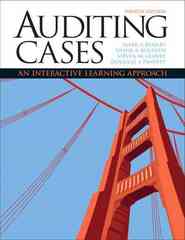Question
Comment discussion below and reply to the questions : Title: How Does Climate Change Impact on International Trade? Authors: London School of Economics Link: https://www.lse.ac.uk/granthaminstitute/explainers/how-does-climate-change-impact-on-international-trade/Links
Comment discussion below and reply to the questions :
Title: "How Does Climate Change Impact on International Trade?"
Authors: London School of Economics
Link:
https://www.lse.ac.uk/granthaminstitute/explainers/how-does-climate-change-impact-on-international-trade/Links to an external site.
Sources:
- Desrochers, P., Lusk, J. L., Norwood, B., Candela, R., & Henderson, D. (2021, December 24). Regenerative Agriculture and the Denial of Comparative Advantage. Recreating Old Problems? Econlib. Retrieved March 6, 2024, from https://www.econlib.org/regenerative-agriculture-and-the-denial-of-comparative-advantage-recreating-old-problems/Links to an external site.
- Norberg, J. (2023, October 10). Globalization: A Race to the Bottomor to the Top? Cato Institute. Retrieved March 5, 2024, from https://www.cato.org/publications/globalization-race-bottom-or-topLinks to an external site.
- Rossi-Hansberg, E., Demet, K., Nagy, D. K., & Conte, B. (2021, May 4). Trade to adapt: Changing specialisation to cope with climate change. CEPR. Retrieved March 6, 2024, from https://cepr.org/voxeu/columns/trade-adapt-changing-specialisation-cope-climate-changeLinks to an external site.
Bias Category
Left biased: "These media sources are moderate to strongly biased toward liberal causes through story selection and political affiliation. They may utilize strong, loaded words (wording that attempts to influence an audience by using appeal to emotion or stereotypes), publish misleading reports, and omit reporting of information that may damage liberal causes. Some sources in this category may be untrustworthy." (MediaBias).
Summary
The article above explains international trade and climate in-depth, specifically on global trade patterns, economic development, and supply chains. Since climate change has affected our environment, it has caused several extreme weather conditions, making the process challenging to transport to other countries. Moreover, it delves into the adverse effects of climate change on various traded sectors, including agriculture, fisheries, manufacturing, and tourism, causing disruptions in supply chains, productivity losses, and restrictions on trade. Due to that, it is shifting the comparative advantage patterns, creating risks and new economic opportunities for the countries.
The transition to a low-carbon economy reshapes comparative advantage, with renewable energy sources and technological developments transforming global energy markets and trade. The emergence of a new global energy market based on renewable energy sources presents opportunities for many emerging markets and developing economies to achieve energy resilience and security. However, barriers such as the high cost of capital in developing countries and uneven distribution of minerals used in renewable energy technologies could impact the pace of the transition and trade dynamics.
Connection to Class
Professor Ahmad explained Module 7's lecture about the Ricardian model and the benefit of comparative and absolute advantages in trade exports. Depending on the country's level, they choose comparative or absolute advantage towards their trade exports by providing resources to the United States and other international countries. Some include capital, natural resources, and factors of production. At the same time, others offer lower transportation costs. Each country has its benefits and disadvantages, given a specific outcome in trade. The Ricardian model theory states that countries should specialize in a product that will provide efficiency through international trade, bringing a certain equilibrium to their production or vice versa.
Discussion Questions
- When determining whether a country should engage in trade exports, how do factors such as comparative and absolute advantages in resource allocation complicate the decision-making process?
- In what ways can the principles of the Ricardian model be applied to address issues related to climate change and promote sustainable economic development?
- How can countries with a comparative advantage in carbon-intensive industries transition to a more sustainable economic model without sacrificing their competitiveness in the global market?
- How has the concept of absolute advantage helped shape international trade policies in the context of addressing climate change?
- In what ways can international trade agreements incentivize countries to invest in low-carbon technologies and reduce their carbon footprint?
Step by Step Solution
There are 3 Steps involved in it
Step: 1

Get Instant Access to Expert-Tailored Solutions
See step-by-step solutions with expert insights and AI powered tools for academic success
Step: 2

Step: 3

Ace Your Homework with AI
Get the answers you need in no time with our AI-driven, step-by-step assistance
Get Started


